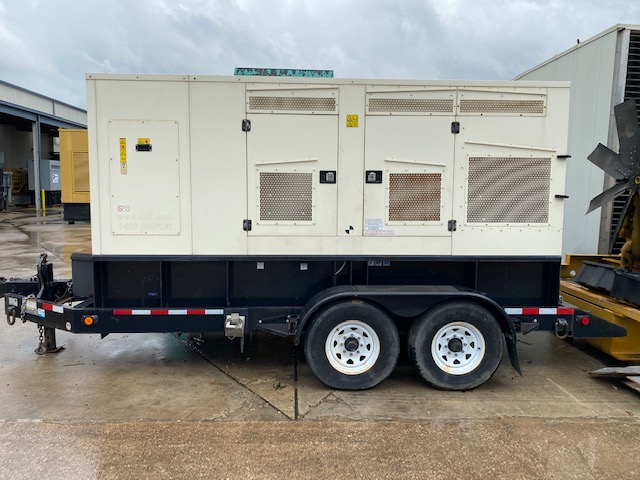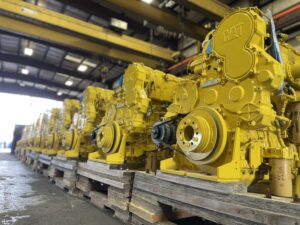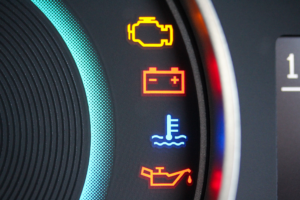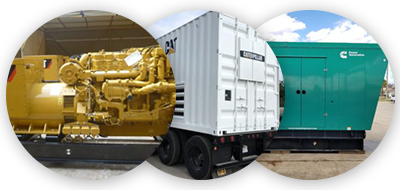
When buying a generator, you can’t make an impulse purchase because generators are expensive and, in most instances, a long-term investment. That’s why it’s essential to ask yourself all the right questions, such as those about the power rating and size.
More importantly, you must decide if you need a portable or stationary generator. While both these generator types are beneficial, their suitability for commercial or residential operation will differ, depending on your requirements.
Here’s a rundown of portable vs stationary generators to help you make a decision in this regard.
Portable Generators
As the name indicated, portable generators can be taken anywhere, and that’s their biggest strength. They’re suitable for gas and oil operations or companies that work in different locations.
The average run time of a portable generator is under 12 hours, which is sufficient for most operations.
Since you can move portable generators, they can be set up in a variety of places, as needed. Although the power rating differs from one company to another, portable generators typically provide anywhere from 5000 watts to 75000 watts of power.
As for their cost, it ranges from $500 to $4000. Again, the price depends on the company and the amount of power provided by the generator. However, an upside of portable generators – as opposed to stationary units – is the absence of any installation fee.
Performance
Apart from the basic features, you must also consider the performance of a generator before purchasing it. Portable generators work for around 12 hours but need to be air-cooled.
Thus, you’ll need a well-ventilated area to store them. Alternatively, they can be kept in the open for adequate air ventilation. Moreover, you must make sufficient arrangements to safeguard these generators against snow, rain, and related environmental factors.
Otherwise, the weather elements can corrode the components of a portable generator or cause rusting.
Usage
Portable generators are fit for use in situations where you have low backup requirements. They are also ideal for running residential applications and appliances, such as ACs, refrigerators, and sump pumps.
Additionally, you can use them on construction sites, recreation vehicles, motorhomes, and RVs. Since portable generators are mostly small in size, they can be stored easily in tow vehicles.
Limitations
A feature of these generators – that some people may consider a shortcoming – is the manual operation.
You have to turn on a portable generator manually. But that’s not the only downside of portable generators.
Additionally, portable generators can be pretty noisy during operation since they do not have sound insulation technology. Besides, if there’s a power outage, you have to manually start the generator again, which may be a hassle in some cases.
They also require fuel, which has to be carried with them to the location.
If you’re working in a remote location, it can be difficult to find a safe place for storage. As the generator’s power output increases, its fuel requirement will too. Depending on the generator type, it will require one of the following energy sources:
- Biodiesel
- Propane
- Gasoline
- Natural gas
Stationary Generators
As opposed to portable generators, their stationary counterparts stay in one place and cannot be moved. They are more suitable for demanding operations since they provide up to 20,000 watts of power.
Since they have a higher power output, they’re also more expensive, with the cheapest models starting from $2000.
The advanced models can cost as much as $5000 minus the additional installation fee.
Another difference between both generator types is that stationary generators turn on automatically if there is a power outage. Plus, there’s no need to make provisions for fuel storage since they run on propane or natural gas.
Performance
Although they have the additional advantage of portability, portable generators are not suitable for high-power operations. On the contrary, stationary generators are fitter for such jobs, especially when it’s a long-term project.
These generators can run for long periods, providing power outputs of up to hundreds of kilowatts.
They also address the urgent commercial power needs since they turn on automatically. During installation, the professional hard-wires the generator into the distribution panel, allowing it to start itself in case of a power outage.
When the power returns, the generator automatically ceases any function, going back to the standby mode. The process typically takes anywhere between 15 and 30 seconds.
Therefore, you must have a UPS in place to ensure that the necessary medical equipment, computers, or apps do not shut down in this duration. Also, a stationary generator’s motor oil needs to be changed after 50 to 100 hours of use.
So, you must have a UPS to power the essential equipment during this period.
Usage
Stationary generators are useful in demanding, high-power, and long-term situations. You’ll generally find them on construction sites with extended projects and medical settings.
Limitations
As discussed, these generators are comparatively expensive. On top of that, you have to pay an installation fee and get a municipal permit from the local authorities.
Getting the permit is somewhat of a time-consuming and tedious task.
How To Choose Between Portable and Stationary Generators?
The portable vs stationary generators debate is imperative for buyers to determine the kind of generator they require for their needs. Having said that, portable units are perfect for short-term and limited operations.
Moreover, they’re also a good choice if you’re working with a small budget and don’t have advanced requirements.
Meanwhile, stationary generators provide continuous high power for extended hours at a time. Since they’re more expensive, their purchase is senseless if your requirements are temporary or infrequent.
In addition, you need to get a permit and pay an installation fee for a stationary generator. So, there’s no need to go through this hassle unless you have a long-term and demanding project on your hands.
Conclusion
Both stationary and portable generators are useful in their unique ways. While one is less expensive and suitable for temporary tasks, the other is ideal for advanced operations.
The generator you choose depends on your individual requirements and budget. Hopefully, this portable vs stationary generators comparison would have helped create a visible distinction between both types.






